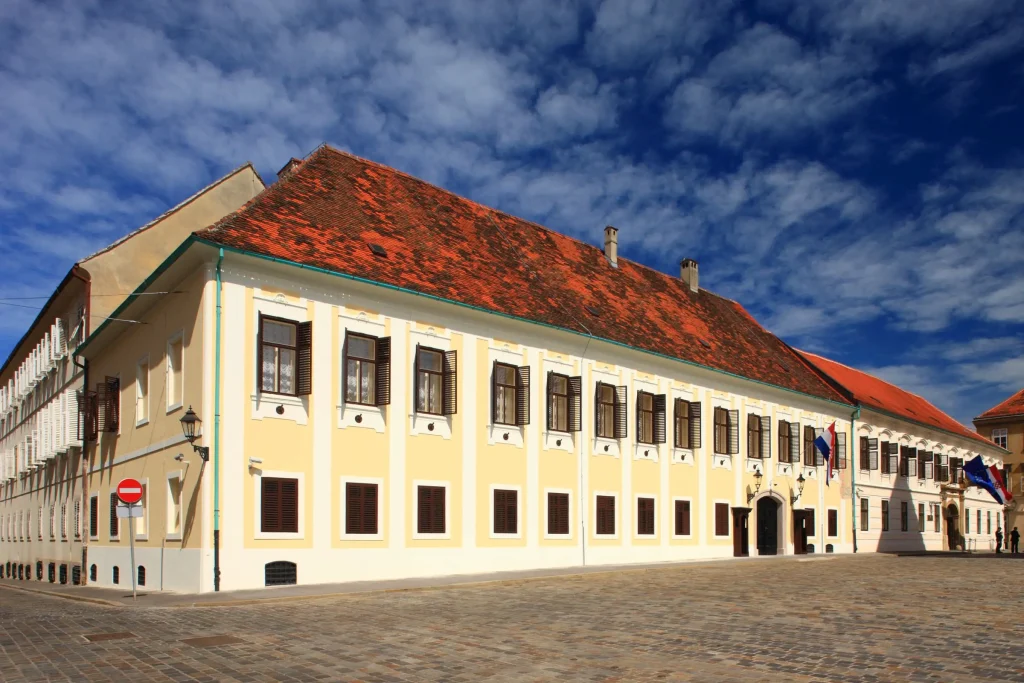As Poslovni Dnevnik writes, the Croatian Parliament, which will conclude its regular autumn session on Wednesday this week, will discuss the final text of a law on preventing conflicts of interest today, which the opposition finds a number of objections to which should be rejected by the parliamentary majority and the government.
”With this law, we’re making the procedure for determining conflicts of interest more quickly, more transparently, and to make the law more transparent,” emphasised Prime Minister Andrej Plenkovic.
The opposition insists that the new law will “euthanise”, and reduce the work of the Commission for Deciding on Conflicts of Interest to the level of an ordinary bureaucratic body.
”This isn’t true, we ‘e expanding and strengthening the competencies of the Commission, it remains an important and independent anti-corruption body with extended powers to new taxpayers, with new mechanisms,” said State Secretary of the Ministry of Justice, Josip Salapic.
“This is one of our conditions and plans for the NPOO, and with this law we’ll be able to meet one of the important criteria according to the European Commission,” he said.
The new law, he says, will significantly expand the circle of taxpayers, with a thousand new ones added, more than 7,000 taxpayers will be required to submit a report on their assets, with property cards needing to be submitted once a year. Data on assets will have to be submitted by the presidents of the management boards of companies owned by the state and local self-government units, directors of healthcare institutions, HRT, HAKOM, the Fund for the Reconstruction of the City of Zagreb, etc.
The law extends the “cooling-off period” from 12 to 18 months after the term of office, during which officials will not be able to be appointed to management positions in companies with which they have been in business or supervised. Proceedings before the Commission should then be faster, and instead of three steps being involved, there will only be two, the initiating of proceedings and then decisions on the existence or non-existence of any conflicts of interest.
If the Croatian Parliaments votes in favour, this will toughen the fines, so instead of the previous 2,000 kuna, the Commission will be able to impose a minimum fine of 4,000 kuna, while the maximum penalty remains 40,000 kuna.
“We’re increasing the limit of sanctions for violating the provisions of the law by one hundred percent, they can charge not only what one salary is worth, but also other property, ie income,” said the Prime Minister, who also referred to the opposition’s criticism of the current Article 5 of the law.
“The issue is the current Article 5 of the law, ie the principles of operation, regardless of the number of articles which are changing, the principles remain, no one deletes them, no one touches them,” he stressed and said that the Commission will be able to apply them judgments of the High Administrative Court, in accordance with this law.
”With the proposed law, we’ve fulfilled all the preconditions from the Rule of Law Report published by the European Commission, and we’ll also have fulfilled the recommendations of GRECO,” the Prime Minister pointed out.
On Monday, Croatian Parliament will also discuss the Final Bill on the Croatian Chamber of Commerce (HGK), which will abolish membership fees for more than 95 percent of enterprises, and transform the Chamber into an efficient service aimed at business owners.
The membership fee model is divided into three groups by the Croatian Chamber of Commerce, and the first will be exempt from paying membership fees. This group will include members who do not exceed two of the three criteria – their total active income does not exceed 7.5 million kuna, total annual income 15 million kuna, and the number of employees doesn’t exceed 50.
This week, Croatian Parliament should also appoint three members of the HRT Supervisory Board, because the mandates of the president of the Supervisory Board, Mladen Cutura, deputy Maja Martinovic and member Morana Palikovic Gruden expire on December the 15th this year.
The Media Committee has determined the list of 11 candidates who do meet the conditions from the competition, namely Zoran Barac, Pasko Bilic, Zdravko Kedzo, Marijo Kraljevic, Silvija Luks-Kalogjera, Luka Madjeric, Antun Paveskovic, Maja Pleskalt, Marko Primorac, Damir Rudes and Alan -Stjepko Soric.
After voting on all the discussed points on Wednesday, Croatian Parliament will go on a one-month break, they sat almost continuously this autumn, the only exception being the week in which the Day of Remembrance of the Victims of Vukovar and Skabrnja was marked.
For more, check out our dedicated politics section.








